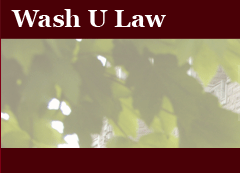Article Title
Are We Really Racing to the Top or Leaving Behind the Bottom? Challenging Conventional Wisdom and Dismantling Institutional Repression
Publication Title
Washington University Journal of Law & Policy
Abstract
This Article does not dispute that racial integration and socioeconomic integration are valuable tools for promoting equality and democratic values. Indeed, as noted herein, racial and socioeconomic integration are laudable goals that further promote civic democracy, racial acceptance, and a sense of interrelatedness necessary to combat racism for a healthier, more inclusive society. Where the seeds of integration are possible and the environment for integration exists, it should be vigorously pursued. However, where entrenched racial segregation persists, or where white resistance remains truculent, other alternatives are needed and are needed now if generations of students are no longer to be relegated to the streets, death, or the prison industrial complex. Moreover, simply seeking white or middle-income students in the classroom is not a substitute for dismantling the devastating policies targeted to students of color that systematically repress them even in integrated learning environments. Further, integrated classrooms are no substitute for the dynamic teaching and learning that is needed, nor is that tactic a guarantee of the other benefits middle-income students typically enjoy outside the classroom, which can impact educational performance but which nonetheless can be replicated through mentoring and holistic, comprehensive education reform in high- poverty schools.
Today, a new, altruistic, and dedicated character of well- apprenticed educator-mentors with cultural competence to comprehend and leverage racial and cultural competencies that transcend race, class, and color to embrace the individual intellectual, emotional, and psychological well being of students is needed. This new cadre of teachers, leaders, mentors, and community partners, along with parents and families, must redefine for children from the ground up a new self-empowerment, high expectations, and high commitment that brings out the best talents, interests, and abilities of students, regardless of where they are schooled. Our nation‘s schools are in need of teachers and leaders who continually promote a school culture of improving excellence and proven self worth. Accordingly, this Article is a clarion call for reforms that include but also extend beyond integration. It is not a call to abandon the rights reform agenda of the Brown era. Reforms should use that agenda‘s arsenal to eradicate harmful, invidious, and nefarious educational policies that hinder excellence in developing students‘ full potential in society. This includes retaining a unique type of teacher quality re- conceptualized for students of color where student engagement, cognitive inquiry, skills acquisition, and academic success for students in high-poverty, minority schools can flourish.
Recommended Citation
Maurice R. Dyson,
Are We Really Racing to the Top or Leaving Behind the Bottom? Challenging Conventional Wisdom and Dismantling Institutional Repression,
40
Wash. U. J. L. & Pol’y
181
(2012),
https://openscholarship.wustl.edu/law_journal_law_policy/vol40/iss1/6
